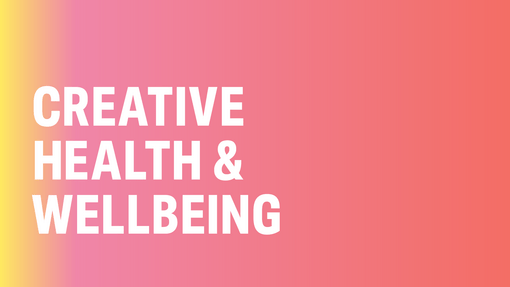Self-care, leadership and me
Posted by:

When I started writing about how important my self-care is to me as a leader, I was super excited, well for all of a nanosecond. Then reality (or at least my reality) hit me. To my mind I thought at least 80% of you, especially board level leaders, might glance at the title and move on. So I’m unashamedly going to start by saying my experience of understanding and acting on my self-care needs in the workplace have made financial business sense to most of the small and large organisations and clients I’ve worked with.
So, what is self-care in the workplace? It is articulating your individual needs, so you are fit and well to do your job. Crucially, it has often included ‘fighting’ some form of adversity, in this case in the workplace, to get your needs met. Back to the adversity element in a minute.
We know that self-care in the workplace for leaders is important, Arts Council England’s 2018 report Changing Cultures tells us that. Self-care is an issue for everyone, not just those with a health diagnosis like myself. Over the last couple of decades I have created and managed teams that have overperformed. We’ve worked faster, smarter and happier. I’m not the best at many things, but my transparency about me and my self-care seems to inspire team unity and a feeling of working in a safe space by those I lead and collaborate with. Teams working in safe spaces perform better. My diagnosis also contributes to my skill set, from being able to positively disrupt ways of working to building and leading diverse, solution-oriented teams.
Back to the adversity element of self-care. I’ve grappled with having my self-care needs mistaken for me not being able to do the job. A battle complicated by the intersection of ethnicity and gender that has often left me feeling isolated. Countering that, being open about having PTSD, dissociative disorder, BPD and dyslexia and the skills they bring to the workplace help me to articulate the adjustments I need. These are both practical (e.g. flexible working hours and sometimes locations) and emotional (e.g. being and ‘feeling’ supported by an organisational culture when I’m offering solutions that may initially be seen as odd). Embedding a working practice that leaves no one feeling isolated, especially those at the top, will benefit everyone.
What else does my self-care mean to me? In the longer term, it shapes my ambitions about the organisations and clients I work with. Daily it means I empower my team to challenge and veto both how we work and the work we take on because it affects my self-care and theirs.
Self-care in the workplace does not require having or sharing a diagnosis, it hinges on honest conversations between you and the people you work with and lead. Here are some tips to get you started or moving more quickly along this journey.
- Get yourself a coach and work to create a space of real honesty between you, as part of that work include your self-care needs and think about why in this role you need them.
- Organisationally, follow the lead of Battersea Arts Centre who employ Joanne Irvine as an organisational coach. That objective expertise maintains individual confidentiality but can give you anonymised temperature gauges about the overall self-care requirements and other human resource centred metrics of your organisation.
- Build self-care into your HR processes. When at Oval House as Executive Producer, Stella Kanu (now Executive Director of Lift), instituted self-care into appraisal systems, so that from the top down self-care was front and center in the organisational culture.
We love the publicly funded arts sector, but we know the pressures working within it brings. Everything in life is interlinked and if as a leader you are not developing your own self-care strategies as part of your leadership tool kit, might I ever so gently suggest something essential in that toolkit is missing. Thank you for making it to the end *smiles*.
Suzanne Alleyne is a Creative Strategist and Cultural Thinker.













